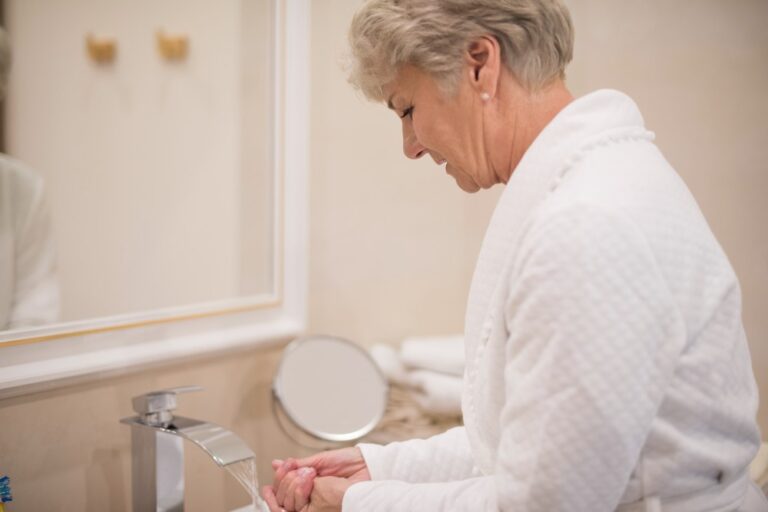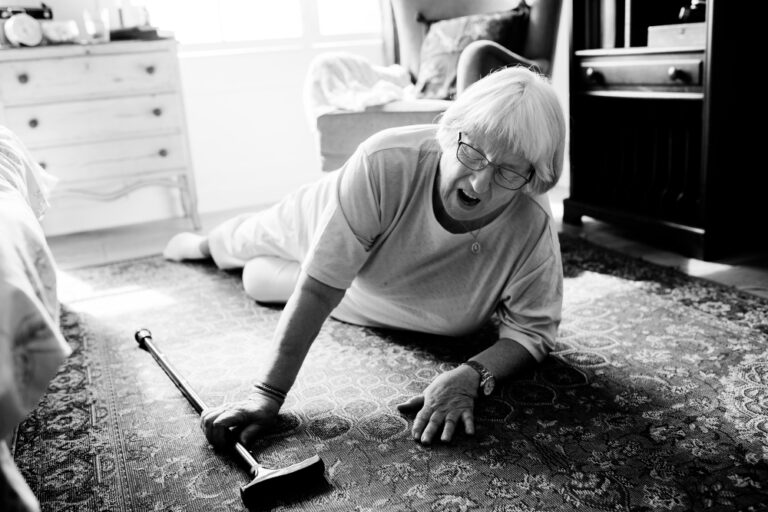Table of Contents
- The Importance of a Positive Outlook on Aging
- Prioritize Your Health: It’s Never Too Late
- Be a Lifelong Learner: Keep Your Mind Sharp
- Foster Social Connections: Combat Isolation
- Celebrate Your Age: Reflect and Rejoice
- Cultivate Positivity: The Power of Gratitude
- Note: Navigating Life’s Challenges Positively
- Conclusion: Embrace the Journey of Aging
Aging is a universal experience, yet the way we perceive it can vary significantly. For many, aging is often met with dread, reflecting societal views that associate growing older with decline and loss. However, From The Heart Home Care advocates for a different perspective: aging should be celebrated, not feared. Research indicates that seniors with a positive outlook on aging tend to live longer, healthier lives. In this article, we’ll delve deeper into the importance of a positive mindset regarding aging and provide practical strategies to cultivate that positivity.
The Importance of a Positive Outlook on Aging
Understanding Ageism
Ageism, the stereotyping and discrimination against individuals based on their age, often fuels negative perceptions of aging. This societal bias can impact how we view our own aging process. Many people internalize these negative stereotypes, leading to feelings of inadequacy and fear as they grow older. However, embracing a positive outlook on aging can combat these societal messages and promote a healthier, more fulfilling life.
The Science of Positive Aging
Studies have shown that individuals who maintain a positive perspective on aging enjoy numerous benefits, including:
- Enhanced Longevity: Research conducted by the Yale School of Public Health found that older adults with a positive attitude towards aging can live up to 7.5 years longer than their pessimistic counterparts.
- Improved Mental Health: Positive aging correlates with lower levels of depression and anxiety. A study published in the journal Psychology and Aging found that those who hold positive beliefs about aging experience lower stress levels.
- Better Physical Health: A positive mindset can lead to better health outcomes. Positive thinkers are more likely to engage in healthy behaviors, such as regular exercise and a balanced diet, contributing to overall well-being.
Prioritize Your Health: It’s Never Too Late
The Mind-Body Connection
As we age, the importance of maintaining our physical health becomes increasingly clear. However, the connection between our mindset and our physical health is equally crucial. Age is merely a number; what matters most is how you feel and how well you take care of yourself.
Staying Active
Engaging in regular physical activity is essential for promoting health and well-being in older adults. Here are some effective ways to stay active:
- Low-Impact Exercises: Activities such as walking, swimming, and yoga are excellent choices for seniors. These exercises promote cardiovascular health, flexibility, and strength without putting excessive strain on the body.
- Strength Training: Incorporating light resistance training into your routine can help maintain muscle mass, improve balance, and enhance mobility. Consider using resistance bands or light weights under the guidance of a professional.
- Find Activities You Enjoy: Choose activities that you find enjoyable. Whether it’s dancing, gardening, or cycling, engaging in activities you love will motivate you to stay active.
Balanced Nutrition
Proper nutrition plays a significant role in maintaining health as we age. Here are some tips for a balanced diet:
- Emphasize Whole Foods: Focus on whole, nutrient-dense foods, such as fruits, vegetables, whole grains, lean proteins, and healthy fats. These foods provide the vitamins and minerals necessary for optimal health.
- Stay Hydrated: As we age, our sense of thirst may diminish, making it essential to drink enough fluids. Aim for at least eight glasses of water a day, and consider incorporating hydrating foods like cucumbers, oranges, and watermelon.
- Moderation is Key: While it’s important to enjoy your favorite treats, moderation is essential. Aim for a balanced approach to your diet, indulging occasionally while prioritizing nutritious options.
Be a Lifelong Learner: Keep Your Mind Sharp
The Value of Mental Stimulation
Just as physical exercise is vital, so is mental stimulation. Keeping your brain engaged can enhance cognitive function, reduce the risk of dementia, and improve overall well-being.
Activities for Mental Health
Incorporating activities that challenge your mind can be both enjoyable and beneficial. Here are some engaging options:
- Reading: Explore different genres or subjects that interest you. Reading not only expands your knowledge but also stimulates your imagination and creativity.
- Creative Arts: Activities such as painting, knitting, or crafting can boost cognitive function and provide a sense of accomplishment. Engaging in creative pursuits allows for self-expression and can be therapeutic.
- Puzzles and Games: Activities like crosswords, sudoku, and board games are excellent for keeping your mind active. Consider joining a trivia club or participating in game nights with friends to add a social element.
- Online Courses: Many platforms offer free or low-cost courses on various topics. Learning something new can be a fulfilling way to keep your mind engaged and challenge yourself.
Learn More: The Importance Of Companionship In Elderly Care
Foster Social Connections: Combat Isolation
The Impact of Social Engagement
As we age, it’s common to experience a shift in social dynamics. Losing touch with friends and family can lead to feelings of loneliness and isolation, which can negatively affect both mental and physical health.
Strategies for Building Connections
Maintaining and fostering social connections is crucial for well-being. Here are some strategies to combat isolation:
- Join Clubs or Groups: Whether it’s a book club, gardening group, or exercise class, engaging with others who share your interests can create meaningful relationships. Look for local community centers or organizations that offer activities tailored to seniors.
- Volunteer: Helping others can provide a sense of purpose and fulfillment. Consider volunteering at local charities, schools, or community organizations. This is a fantastic way to meet new people while making a positive impact.
- Rekindle Old Friendships: Don’t hesitate to reach out to friends you haven’t spoken to in a while. A simple phone call or message can rekindle connections and enrich your life.
- Use Technology: Embrace technology to stay connected with loved ones. Video calls, social media, and messaging apps can help bridge the gap, especially if family members live far away.
Celebrate Your Age: Reflect and Rejoice
The Significance of Milestones
Each birthday is not only a celebration of life but also an opportunity to reflect on personal growth and accomplishments. Rather than viewing birthdays with dread, consider them milestones worth celebrating.
Ways to Celebrate Your Age
Here are some ideas to make your birthday celebrations meaningful and joyful:
- Host a Celebration: Gather family and friends to celebrate your birthday. Sharing laughter, stories, and memories can create lasting bonds and cherished moments.
- Create a Personal Ritual: Consider establishing a birthday tradition that resonates with you. This could include writing a letter to your future self, setting goals for the year ahead, or creating a vision board.
- Focus on Health: Use birthdays as reminders to prioritize your health. Schedule check-ups, consider starting a new exercise routine, or explore new healthy recipes.
Cultivate Positivity: The Power of Gratitude
The Benefits of Positive Thinking
Positive thinking has been linked to increased longevity, improved mental health, and a lower risk of chronic diseases. Cultivating a positive mindset is a powerful tool for enhancing your quality of life.
Strategies for Fostering Positivity
Here are some effective ways to cultivate positivity in your life:
- Keep a Gratitude Journal: Regularly writing down what you’re thankful for can shift your focus from negativity to appreciation. Consider jotting down three things you’re grateful for each day. Over time, you’ll likely notice a more optimistic outlook.
- Practice Mindfulness and Meditation: Engaging in mindfulness practices can help you stay present and focused. Meditation, deep breathing exercises, and yoga can reduce stress and improve mental clarity.
- Surround Yourself with Positivity: Seek out positive influences in your life, whether through friendships, literature, or media. Engage with people who uplift and inspire you.
- Give Back to the Community: Helping those less fortunate can provide a sense of purpose and fulfillment. Volunteer your time or resources to a cause you’re passionate about, fostering a sense of connection and gratitude.
Learn More: 9 Tips to Keep Your Brain Sharp and Healthy as You
Note: Navigating Life’s Challenges Positively
It’s essential to understand that positive thinking does not mean ignoring life’s challenges. Instead, it involves approaching problems with a constructive mindset and focusing on solutions. Embracing life’s complexities can enhance resilience and adaptability, two essential qualities for thriving as you age.
Conclusion: Embrace the Journey of Aging
Aging is a natural part of life that can be approached with joy and positivity. By prioritizing health, fostering social connections, and maintaining a positive mindset, you can thrive in your golden years. At From The Heart Home Care, we encourage you to embrace aging as a journey filled with opportunities for growth, learning, and celebration. By adopting these practices, you not only improve your own life but also inspire others to view aging in a more positive light.







